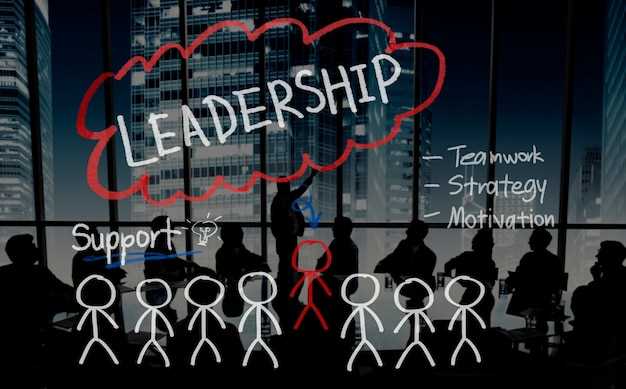
Discover the art of cultivating influential aptitudes and refining your abilities to guide and inspire others towards achieving common goals. Nurture your potential as a leader and harness the power of collaborative decision-making to foster a culture of success.
Unleash your visionary spirit and hone your strategic thinking to foster a dynamic environment where innovation thrives. Enhance your interpersonal communication skills and ignite a passion for mentorship to foster the growth of future leaders.
Cultivating Proficient Leadership Abilities

Enhancing one’s capacity to lead effectively involves a strategic combination of honing essential qualities, acquiring valuable competencies, and fostering crucial attributes. Cultivating proficient leadership abilities requires a continuous dedication to personal growth, reflection on past experiences, and openness to new perspectives.
Embracing adaptability, nurturing resilience, and fostering collaboration are fundamental aspects of cultivating adept leadership skills. Developing a strong sense of empathy, enhancing communication proficiency, and igniting inspiration among team members are essential components of effective leadership cultivation.
Developing Emotional Intelligence in Leadership

Enhancing the ability to understand and manage emotions plays a crucial role in effective leadership. By honing emotional intelligence, leaders can navigate complex interpersonal relationships, foster collaboration, and inspire teams towards common goals. This section explores strategies for cultivating emotional intelligence in leadership roles, equipping individuals with the tools to lead with empathy, self-awareness, and resilience.
Building Strong Communication Skills for Leaders

Enhancing effective communication abilities is vital for individuals in positions of authority to effectively convey their vision and goals to their teams. Developing proficient communication skills is essential for leaders to foster collaboration, inspire motivation, and build trust within their organization.
Leaders must master the art of articulate expression in order to communicate clearly and concisely with their team members. Developing the ability to convey information in a way that is easily understandable to diverse audiences is paramount in effective leadership.
Establishing open lines of communication encourages dialogue and feedback, creating a culture of transparency and accountability within the organization. Building strong relationships through effective communication can lead to increased productivity, improved morale, and overall success in leadership roles.
Utilizing Problem-Solving Techniques in Leading Growth
In the realm of guiding advancement and progress, the ability to effectively tackle challenges and obstacles plays a crucial role. By employing various problem-solving strategies, leaders can navigate complex situations, foster innovation, and drive success.
Encouraging Critical Thinking: Leaders must encourage critical thinking among team members to identify root causes of problems and develop strategic solutions. This involves questioning assumptions, analyzing data, and exploring different perspectives to arrive at informed decisions.
Collaborative Problem-Solving: Effective leaders foster a culture of collaboration, encouraging team members to work together to solve challenging issues. By leveraging diverse skills and experiences, teams can generate creative solutions and achieve breakthrough results.
Adaptability and Flexibility: In the dynamic landscape of leadership development, adaptability and flexibility are key components of effective problem-solving. Leaders must be able to pivot and adjust strategies based on changing circumstances, staying agile in the face of uncertainty.
